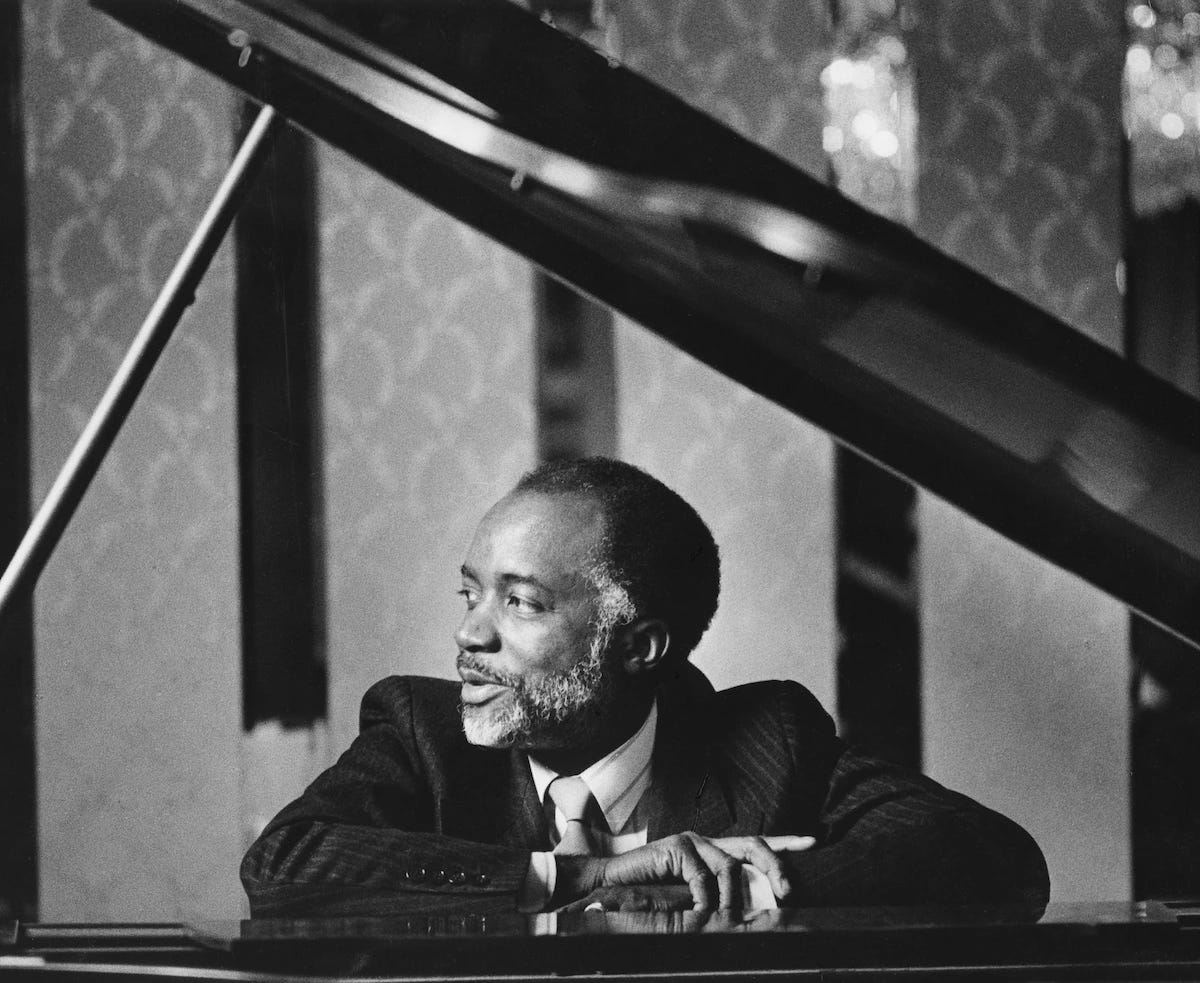Thank You, Ahmad Jamal.
Generations of other players who adopted his less-is-more dynamics were influenced by his tight and rhythmically flexible approach to jazz piano.
Ahmad Jamal died on Sunday at his home in Ashley Falls, Massachusetts. His measured, spare piano style inspired generations of jazz artists. He was 92. Jamal's daughter, Sumayah Jamal, said that her father had died. He died in Ashley Falls, Massachusetts, on Sunday afternoon after a long fight with prostate cancer.
In a career that earned him a Jazz Master award from the National Endowment for the Arts, a Grammy for lifetime achievement, and membership in France's Order of Arts and Letters, Mr. Jamal made a name for himself with a relaxed style that respected what he called "the spaces in the music."
When Mr. Jamal started his career as a youth in the mid-1940s, bebop, a difficult style of music, was all the rage in the jazz world. This style was very different from bebop. Following Bud Powell's lead, bebop pianists became known for their fast-paced runs of notes. Mr. Jamal took a different road, which was just as important.
He was born Frederick Russell Jones in Pittsburgh on July 2, 1930. Ahmad started playing the piano when he was 3 years old. A few years later, he started taking lessons with Mary Cardwell Dawson, who started the National Negro Opera Company. When he joined the Musician's Union at age 14, the famous jazz pianist Art Tatum called him "a coming great," After graduating from high school, Ahmad went on tour with George Hudson's big band.
In 1950, he went to Chicago, became a Muslim, changed his name to Ahmad Jamal, and put together a group of three musicians who played piano, guitar, and bass. This group was called the Three Strings. During an extended stay at the Embers bar in Manhattan in 1951, the three musicians caught the attention of John Hammond, a well-known record producer and talent scout. He signed them to the Okeh label.
Mr. Jamal made Ahmad Jamal Plays, his first full-length album, with guitarist Ray Crawford and bassist Israel Crosby for the small Parrot label in 1955. When Argo, an offshoot of the famous blues label Chess, bought the record and re-released it the following year, it was renamed Chamber Music of the New Jazz. This was a good sign.
The Argo album At the Pershing: But Not for Me, taped in a Chicago bar in 1958 with Bing Crosby and the drummer Vernel Fournier, gave Mr. Jamal his first big break in the United States. It was on the Billboard album chart for over two years, almost unheard of for a jazz record.
Mr. Jamal was as prolific as his light-fingered style was cheap. In the late 1960s and early 1970s, he put out as many as three records a year and made over 60 in his career. He also started a few record companies, a management business, and the Alhambra, a bar and restaurant in Chicago that was only open for a year.
In jazz, Jamal's impact and fans are spread out over a wide area. Miles Davis, a famous trumpeter, got a lot of ideas from his work. In his book from 1989, Miles wrote that Jamal knocked him out with his concept of space, his lightness of touch, his understatement, and the way he phrases notes, chords, and passages. Miles later put New Rhumba by Jamal on his 1957 album Miles Ahead.
He inspired a lot of jazz musicians and musicians outside of jazz, like Miles Davis on trumpet and McCoy Tyner, Cedar Walton, Bill Charlap, and Matthew Shipp on piano. Mr. Jamal relocated to New York to undertake an extended residency at the Village Gate nightclub. Despite his busy performance schedule that year, Mr. Jamal was lauded in 1970 for his electric piano arrangement of Johnny Mandel's M*A*S*H theme. One of Mr. Jamal's most influential trio albums, The Awakening, featured him alongside Jamil Nasser on bass and Frank Gant on drums and was released the same year.
As hip-hop artists started digging deeper into jazz music, a new group of fans found Ahmad Jamal through clever samples from DJ Premier (Soliloquy of Chaos), Pete Rock (Stick to Ya Gunz), Ski (Feelin' It), and many others. In 1996, Jamal's 1974 song Swahililand was sampled by J Dilla to make the title track for De La Soul's Stakes Is High.
Utilizing sampling, albums including The Awakening from 1970, Ahmad Jamal '73 from 1973, Jamal Plays Jamal from 1974, and Jamalca from 1974 have been permanently integrated into the hip-hop lexicon, serving as a source of inspiration for contemporary music producers and musicians. This accomplished pianist captured a younger audience's attention through headphones by presenting a brief excerpt of Jamal's musical repertoire.
Proficient producers possess a keen sense of auditory perception, enabling them to identify and incorporate the ideal loop into their musical compositions. Producers with well-developed auditory skills can identify sample-worthy sounds that the average listener may go unnoticed. Ahmad Jamal has inspired numerous artists and producers who have incorporated his work into their own rather than merely utilizing his music as a sampling resource.


